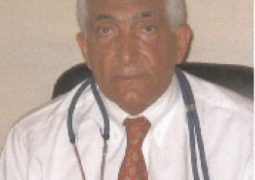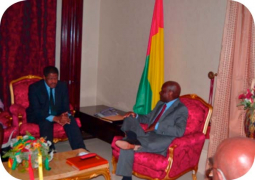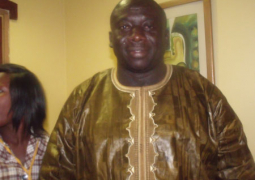Stakeholders from various sectors on yesterday converged at the Baobab Hotel to validate The Gambia’s second draft national report to the Cartagena Protocol on Biosafety.
Representing the National Environment Agency, Momodou Jama Suwareh, senior programme officer for coastal and marine environment, said biosafety has been a matter of concern in the world since the first genetic modified organization (GMO) field trials took place in the 1980s.
The use and release of GMOs into the environment, particularly transgenic plants, has provoked lots of concern.
According to him, the United Nations conference on environment and development in Rio de Janeiro in 1992 emphasized to member countries the importance of international cooperation on biosafety, as chapter 16 of agenda 21 especially stresses the need to ensure safety in the development, application, exchange and transfer of biotechnology, while recognizing the potentials of GMOs to contribute to sustainable development.
The issue of safety in biotechnology found also its way into the 1992 convention on biological diversity in relevant to Article 19, which calls for parties to consider the need for a protocol on biosafety.
GMOs also pose serious risks because genetic engineering raises issues of misuse, new health risks and the unintended creation of organisms and genetic traits that may irreversibly affect the world’s complex ecological cycle.
This use of GMOs raises concern about possible transfer of modified genes to naturally occurring plants and animal species and in effect such transfers are unknown and uncontrollable, he said.
Dr Lewis Saiwana, who spoke on behalf of the permanent secretary at the Ministry of Forestry and the Environment, said biotechnology could in principle offer new opportunities for global partnership and cooperation between The Gambia and the developed countries.
“We are rich in biological resources but lack the expertise to develop through biotechnology whereas other countries have this technological expertise,” he added.
Biotechnology offers a potential promise for sustainable development, even though it is not a panacea and does not give a quick fix for all problems and can potentially be very conducive to improve health care, enhanced for security through sustainable agricultural practice, improved supply of portable water, support for sustainable methods of reforestation and the detoxification of hazardous matter among others.
According to Dr Saiwana, despite the potential benefits of biotechnology there are also potentials risks and constraints, such as mass production of identical plants and animals that can lead to a loss of indigenous species. As agricultural output is harmonized, it becomes more susceptible to disease and pests, this increased vulnerability and could rapidly outweigh the benefits of increase food security.
It is the first time in human history that such a powerful new and largely untested scientific capacity is being developed and controlled by transnational corporations and industries for commercial gains and this has now become increasingly clear that biotechnology is being used against the public interest and indeed human rights, especially in the developing countries.
He said living and natural resources found in the developing countries have become raw materials and are considered to have a potential high commercial value for the biotechnology industries, which gives rise to an intensified pressure to collect and privatize valuable biological materials.
Dr Saiwana further revealed that The Gambia is a party to the Convention on Biological Diversity and World Trade Organization that requires all parties to maintain means to regulate, manage or control the risks associated with the use and released of GMOs, which are likely to have an adverse impact on the conservation and sustainable use of biological diversity, thus the United Nations Conference on environment and development at which the CBD was tabled calls upon its signatories to devote time and effort to safety in biotechnology.
For his part, Alpha Omar Jallow, director of Department of Parks and Wildlife Management (DPWM), said he is aware that increasing in the world’s population have put considerable strain on our land, water and forest resources, especially for food production and medical use.
The DPWM boss stated that The Gambia has some appropriate controls in place because concern arises due to the unpredictability in biological behaviour of genetically modified organs when introduced into natural ecosystems, particularly in the long-term resulting into biosafety.
This term describes the policies and procedures to ensure the safe practice and application of biotechnology in medicine, agriculture, environment and other areas.




